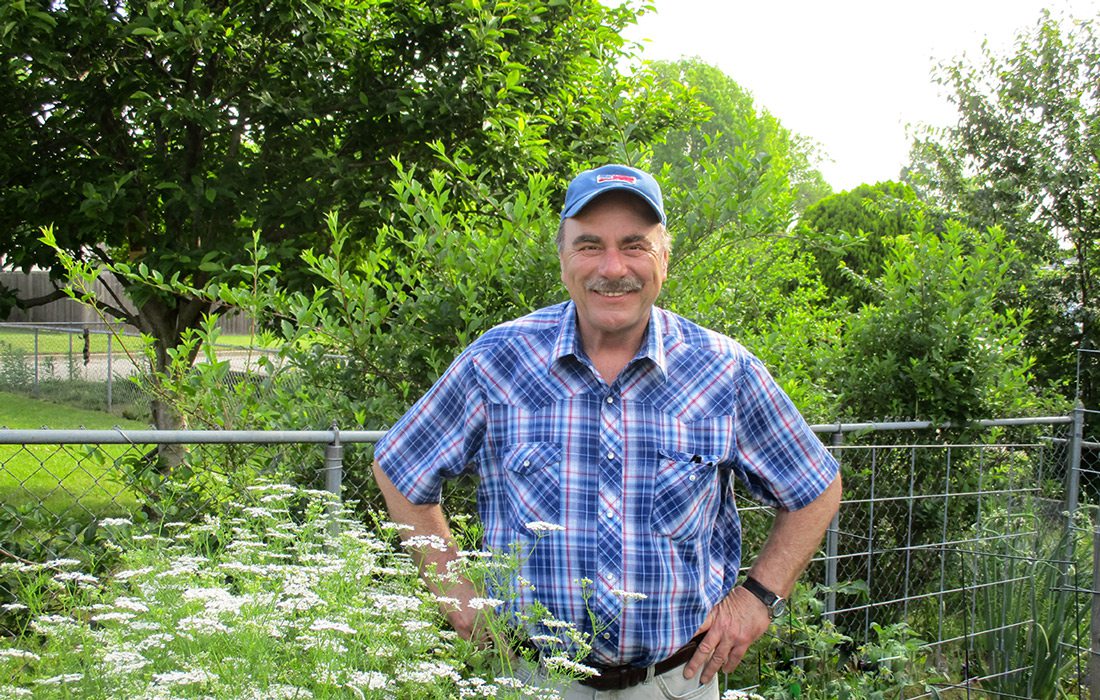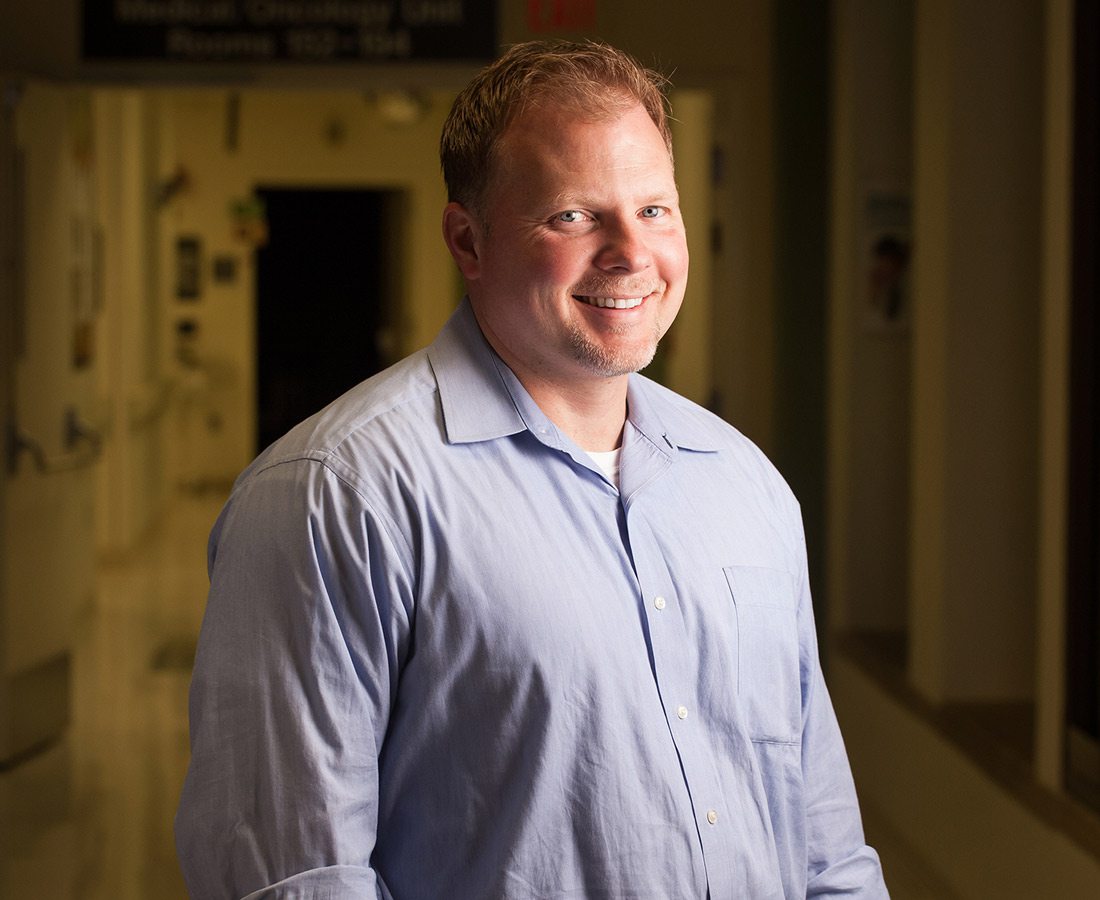Health
How a Joplin Doctor Helped a Cancer Patient Beat the Odds
When Michael Thompson was first diagnosed with stage four lung cancer, he thought it was time to say goodbye to his family. That was six years ago.
by Ettie Berneking
Jul 2021

Michael Thompson plans on working his entire life. For him, a 12- to 15-hour work day feels normal. Even at 65, he has no plans to stop working anytime soon. Listening to him talk about the gauntlet of jobs he’s had, it sounds like Thompson has lived seven or eight lives. He owned a commercial finishing company and a pawn shop in Joplin until the tornado wiped out his business. He’s bought and renovated buildings, and now he designs cabinets at Lowe’s. “People thought I would work till I’m 80,” he says. He still might, of course, that just depends on if his cancer remains under control.
Thompson was diagnosed with stage four lung cancer in 2015. The first time he knew something was wrong was when he started coughing up blood. Talking about it now, Thompson laughs when he shares this part of the story. “That’ll do it,” he says. “I knew something was wrong, but I thought it might have been an ulcer.” By the time Thompson was referred to Dr. Matthew Miller, the medical director of the Freeman Cornell-Beshore Cancer Institute in Joplin, Missouri, Thompson’s upper left lung had collapsed and he was having trouble breathing. Initial testing showed a large mass and that the cancer had spread through Thompson’s body, indicating stage four lung cancer.

“It was devastating,” Thompson says. “It feels like everything in you is taken away.” Miller presented two options. The first was hospice care that would provide Thompson the comfort he needed in the 30 to 40 days he had left, or he could try treatment. Even with chemo, Thompson’s prognosis was bleak, adding just 90 days to his life.
Miller was ready to write a referral for wherever the Thompsons wanted to go for treatment, but they wanted to stay where they were with Dr. Miller. Thompson says it was Miller’s honesty and directness that he valued.
Always the fighter, Thompson began intensive chemotherapy. “With chemo, the balance is always between the benefit of the treatment versus the toxicity of the treatment,” Miller says.
Thompson went from weighing 210 pounds to 125, and suffered severe nerve damage in his feet as a result of the first drug. The second drug worked better, but it wasn’t a long-term solution.
Then in December 2015, a new drug hit the scene—OPDIVO. Unlike chemo, OPDIVO is an immunotherapy, which means it stimulates the immune system to fight the cancer. For Thompson, OPDIVO was a life saver. Not only did it put his cancer in remission, but it allowed Thompson to return to normal life. That was nearly six years ago.
Thompson will remain on OPDIVO for the rest of his life, but he’s not complaining. He’s just thanking Dr. Miller. “When he talks to you, you can look in his eyes and know he cares about his patients,” Thompson says.












